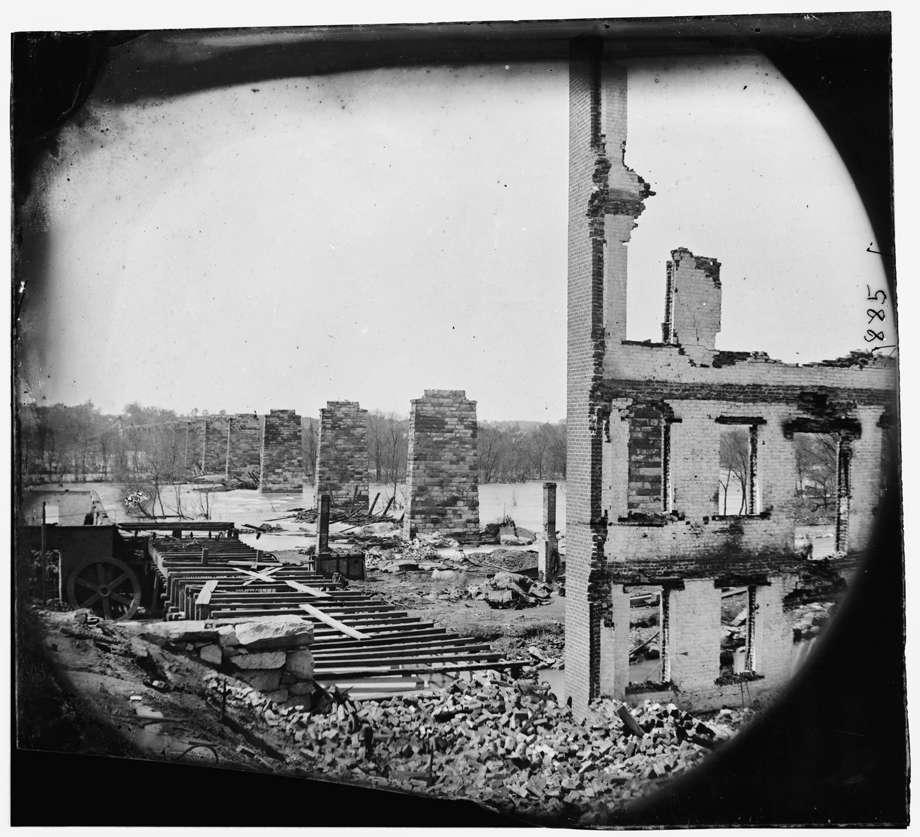
Out of Brokenness
By Kathy Lauderdale
December 25, 2016 finds me in Richmond, Virginia, trying to put a festive face forward while feeling stark desolation and heartache. The election leaves me questioning the values of my neighbors. Everything I know to be true has shifted, resulting in an odd sense of being off balance.
My sweet daughter-in-law, Katie, treats me with the tenderness one bestows a loved one suffering the loss of a close relative. My son, Shin, holds me at arms length until the five o’clock hour provides him respectability. He touches my shoulder and asks if I would like a shot of Rye.
And so we navigate Christmas.
One grey December morning we find ourselves at the entrance of a newly constructed pedestrian bridge crossing the James River. It was built to memorialize a Civil War era bridge burned long ago by Confederate soldiers, an act designed to slow the advancement of the Union Army and the eventual fall of Richmond.
With the rock remains of the original bridge in clear sight, I step into a moment of days past. I make my way very slowly as I read quotes, sanctified in steel, on the floor of the new bridge. Words uttered by various people before and after that fateful battle.
“All over, goodbye; blow her to hell.”
“Sir! I think Richmond is burning. The Sky is Red.”
“Smith, I may feel like a woman, but I can act like a man.”
I set aside, for a moment, the history of the Civil War and allow myself to feel the full sorrow of the people as their homes burned and their lives forever changed. In my grief, I weep.
December 23, 2017 I find myself once again visiting my children and this beautiful city of Richmond. As we discuss events for the next two days, we agree to again walk across the Civil War pedestrian bridge. Somehow, I think, revisiting this site might help me understand my frame of mind after a year of activism, an emotional state that leaves me feeling whiplashed at times. I am awash with feelings ranging from hopefulness and pure joy to barrenness and total failure.
I hesitantly step onto the bridge and the familiar quotes surround me; sadness creeps in. A few steps further and a sentence stops me short. I catch my breath as one who witnesses a burst of sunlight in a summer rainstorm. How did I miss this last year? Surely, I read it; I read everything.
At my feet lies a proclamation. A proclamation by an African American woman. An enslaved woman, I presume. A proclamation made in a crowd surrounding President Lincoln at Capital Square after Richmond fell. A woman who rose up out of the ashes and pronounced, “I know that I am free, for I have seen Father Abraham.”
Faces of the past year rush my consciousness. Faces of the Women’s March. Faces of people who stood up and said Doug Jones will be our next Alabama Senator. Faces willing to call, visit offices of representatives, and protest this new reality in which we find ourselves. Faces of women and men with the courage to rise up and say, “Me, too.” Faces of my children, my brothers and my nephews and nieces. Faces of my new extended family from every corner of this vast country coming together to lay down their bodies in peaceful civil disobedience to protest the repeal of the ACA, assault against Medicaid, and the new immoral tax law.
Not a perfect one among us. Each of us broken. But out of this brokenness, I am able to raise my face to the sky and proclaim, “For I have seen Father Abraham, I too am free.”
Peace,
Kathy Lauderdale
Kathy Lauderdale is a retired Nurse Practitioner from Northeast Alabama. The majority of her career was spent working in federally-funded, rural health clinics. Many of her patients were uninsured and faced impossible healthcare decisions. Against this backdrop, she became politically active in resisting the repeal of the ACA and the passage of the latest tax law. She attended numerous marches and protests and was arrested four times in Washington, DC, while engaging in nonviolent civil disobedience. “Out of Brokenness” was previously published by Tennessee Valley Progressive Alliance.
Photo credit: Richmond burned from the U.S. Library of Congress collection.
